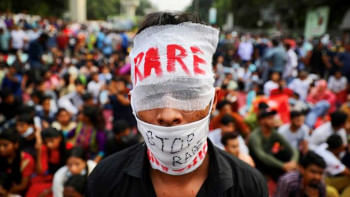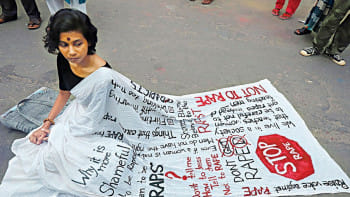A double whammy for victims of violent crimes

It's disheartening to see the continued disregard for the importance of compensating victims of violent crimes like rape. This has once again come to light after a review of the proposed Crime Victims Compensation Act showed how inadequate the legislative effort has been even after a decade and a half has passed since its draft was submitted by the Law Commission. The essence of the proposed act was simple yet profound: establish a district-level fund ensuring compensation as a guaranteed right for victims of certain violent offenses, to be overseen by a committee at each District and Sessions Judge's office. The fund would cover their medical and legal expenses. So what could possibly halt the passage of such an important legal instrument?
Is it because of a lack of political will? Is it because of negligence at the home ministry that has been sitting on the draft since 2007? Or is it because of the state's reluctance to adopt resource-intensive reforms with fiscal implications? Whatever the reason is, it has had the effect of leaving survivors of rape and violence feeling further alienated from the justice system. Currently, survivors can receive compensation post-conviction. The law gives judges discretion to convert fines into compensation, but this hasn't been of much help because of the extremely low conviction rate—about 3 percent in case of rape—and the prolonged legal proceedings and other inhibiting factors that often compel victims to compromise or abandon their cases.
Moreover, as a 2020 BLAST study showed, although fines were imposed in all rape cases that ended in convictions, judges awarded compensation in only less than seven percent of cases. The fines outlined in the existing law also fall far short of providing adequate compensation for rape survivors.
What all this shows is how ineffective ongoing measures have been in upholding the rights and dignity of survivors. Not having conviction and compensation serves as a double blow to them. The lack of conviction is a problem that merits a critical judicial scrutiny as well as meaningful reforms but the lack of compensation—an essential component of justice—also needs to be looked at equally critically.
Against this backdrop, we cannot overstate the importance of enacting the proposed Crime Victims Compensation Act. It's not merely about legislation; it's about restoring faith in the justice system, offering solace to the aggrieved, and upholding the principles of fairness as advocated by our constitution. It's time to bring this law to light, and to stand in solidarity with the victims who have suffered unimaginable brutalities. The state must be able to protect and empower them in every way possible.


 For all latest news, follow The Daily Star's Google News channel.
For all latest news, follow The Daily Star's Google News channel. 











Comments